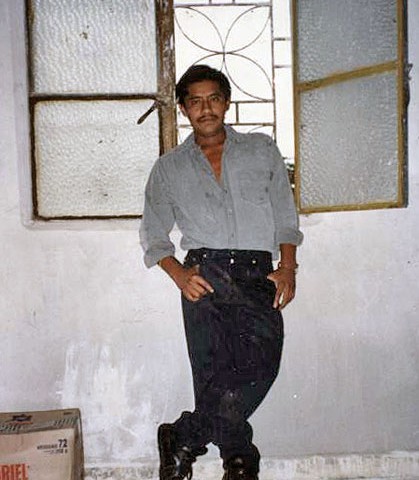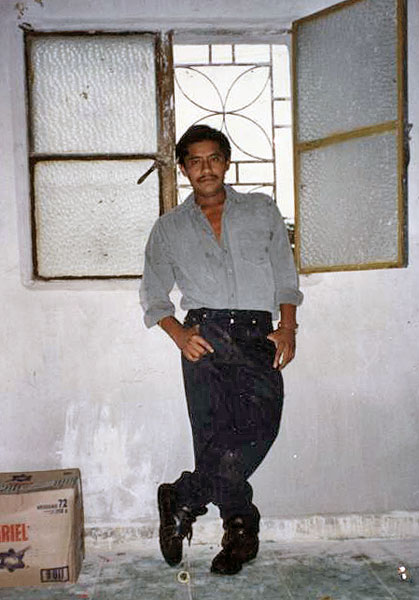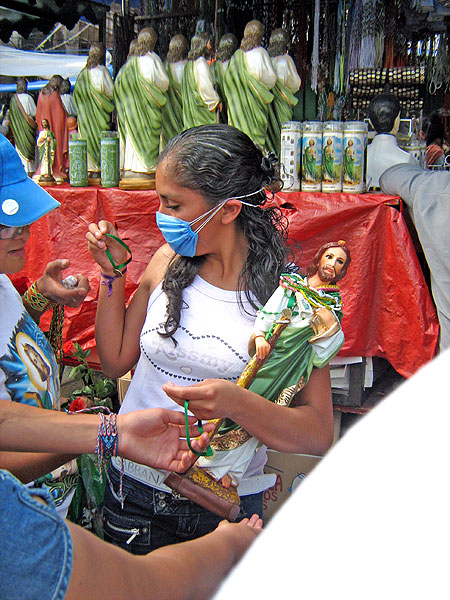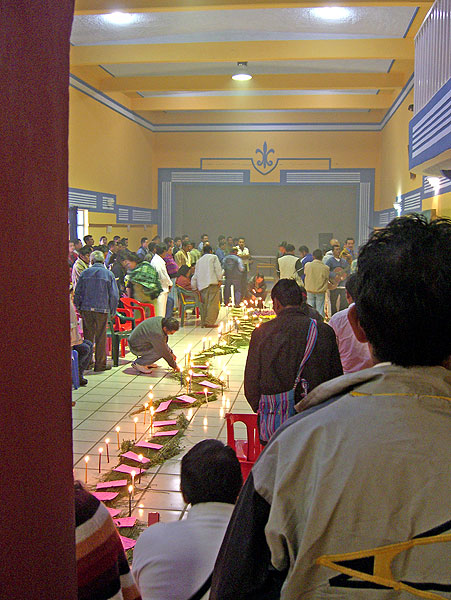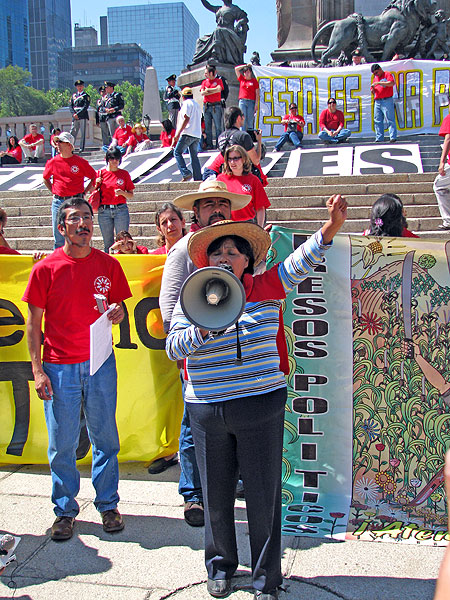
ANALYSIS: Mexico – human rights and security, an impossible puzzle?
30/04/2009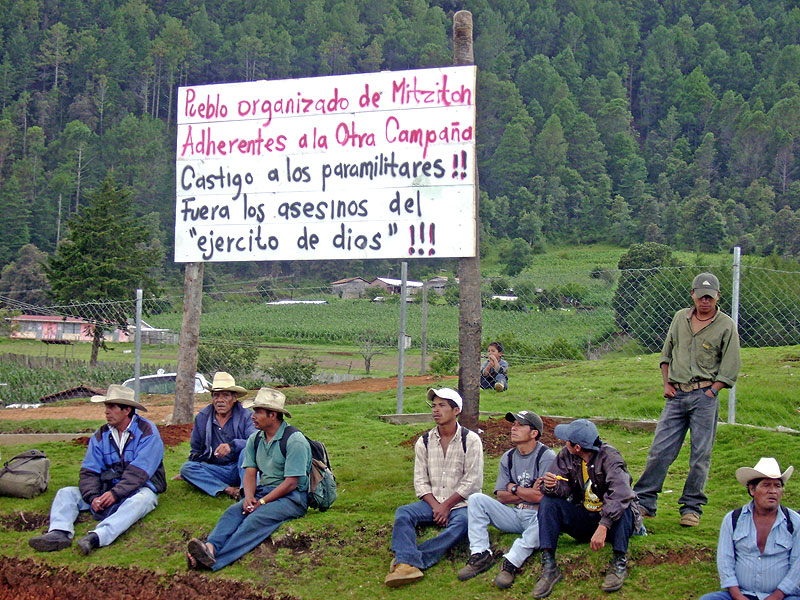
ANALYSIS: A Serious deterioration of the human rights situation in Chiapas and Mexico
30/11/2009“Greetings to those who stand with us and are conscious of our struggle. Yes, we have problems because of the government, but we continue resisting and you continue resisting. So thank you from this place as well. Don’t be afraid of that which can kill the body. We must fear that which kills the body and the soul. We need not fear men. The mental exercise we must maintain is that of David and Goliath and the knowledge that we can win.“.
Fifteen months have passed since 48 prisoners went on a hunger strike in three prisons in the state of Chiapas between March and April of last year (see the SIPAZ Report Vol. XIII No. 2, May of 2008). A number of the prisoners were part of the organization the “Voice of Los Llanos” (La Voz de los Llanos) and incarcerated in the prison in San Cristóbal de Las Casas, which is officially named the State Center of Social Rehabilitation No. 5 ‘Los Llanos’ (CERSS No. 5). Others formed the organization the “Voice of Amate” (La Voz de Amate) in the prison CERSS No. 14 ‘El Amate’. Both groups belong to the Other Campaign (La Otra Campaña) begun by the EZLN. Since the hunger strike almost all the prisoners have been released. The only prisoner left is Alberto Patishtán, one of the founders of the “Voice of Amate” and today the only remaining member. He is now the “Voice of Amate”.
He was detained on June 19th, 2000, and accused of ambush, possession of firearms, and first degree murder of state police officers in El Bosque, the municipality where he lived. According the Human Rights Center Fray Bartolomé de Las Casas (CDHFBC) and others who have followed the case, there were many irregularities in the justice process which support his innocence. As a result of pressure from prisoners and national and international solidarity movements, the government of Chiapas began a process of revising cases. A list with the names of wrongfully convicted prisoners was compiled and in the end almost 300 prisoners were released due to innocence or violations of due process. However, because Patishtán was accused of federal crimes he was not on the list.
Alberto Patishtán is an indigenous tsotsil. Before he was imprisoned he was a teacher, which explains his nickname “the teacher”. He is also a catechist, a responsibility that he has continued to carry out inside prison. He is now being held in the prison CERSS No. 5 after being transferred from El Amate in April of this year. Since being moved, SIPAZ has visited him twice and we would like to let people know some of what he has shared with us.
The most recent development in Patishtán’s legal case is that his defense team has attempted to speed up the process by trying to move his case from federal to state level jurisdiction in order to facilitate his release. But although the request has been made, there has been no progress to date.
Patishtán says that in 5 (meaning the prison CERSS No. 5) there are no ‘precisos‘ like in El Amate: a group of prisoners who, with the help of the prison authorities control the rest of the prisoners, demanding money or work in exchange for protection from being assaulted or mistreated.
Patishtán’s smile and calm voice are inspiring. In his words and his look he shows the strength and the spirit he carries within him. Even though he has spent nine years in prison, he doesn’t seem tired or disillusioned. He says that his social awareness comes from his faith: “The strength and the patience that I have been given is a tool to continue struggling. When I arrived here many people told me: ‘It is good that you came, because we need you, we love you’. Why? I asked myself. That space that is the church also opened up to me when I arrived.”
Alberto Patishtán has also dedicated himself to creating awareness among other prisoners. In prison No. 5 many people live in similar situations as the indigenous even though they are mestizos. They have sentences between 15 and 30 years and their cases have many similarities like “self-declarations of guilt” brought about by torture. He says that many people trust him, they come up to him and ask him: “What is going to happen?”…
Alberto Patishtán does not believe in political parties anymore. He says they use the people like a ladder – to climb over and get ahead. During his talks to prisoners, he says, “they talk of the parties, and they conclude the same thing about all of them. When they understand, they get angry”. On the other hand indigenous autonomy seems to be his path. In the talks he and prisoners also discuss how they’ve forgotten their own culture, and how to reclaim it as “an important part of self-awareness”. He points out that as indigenous people they continue to suffer discrimination: “They ignore us because we are indigenous, because we speak tsotsil, because of our lack of education. And it is something that happens in our own towns; those who have money leave the community or they join the government.” Perhaps because of this “the teacher” says that there is still much to do. The saddest thing he sees in prison are the people who do not want to defend themselves: “They cannot speak Spanish and cannot express themselves, and so many do not speak out. But others have faith and hope that one day they will be released”.
The ‘teacher‘ says that the struggle must continue and that to stop would be to go backwards. “The struggle is a concept that encompasses many things: the injustice of the prison, the prisoners that suffer there, many of them without medicine. It is the same in here as outside, but we must start somewhere”.

